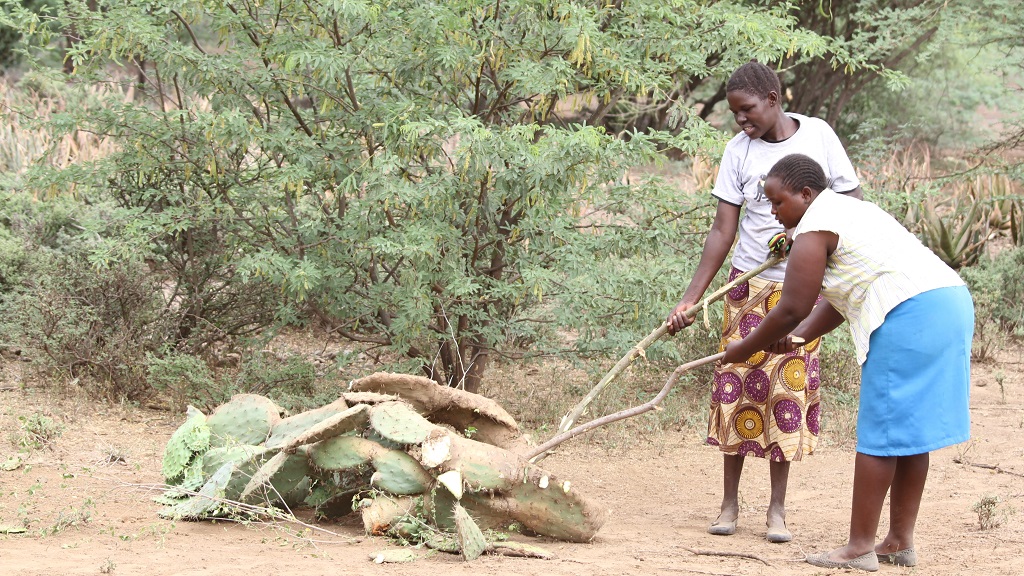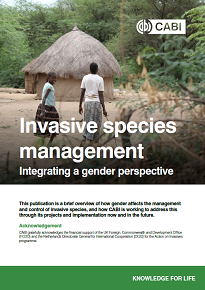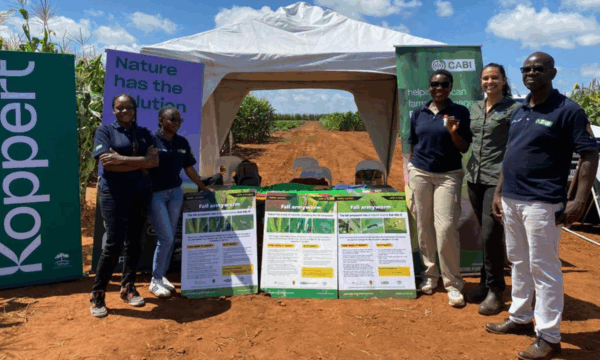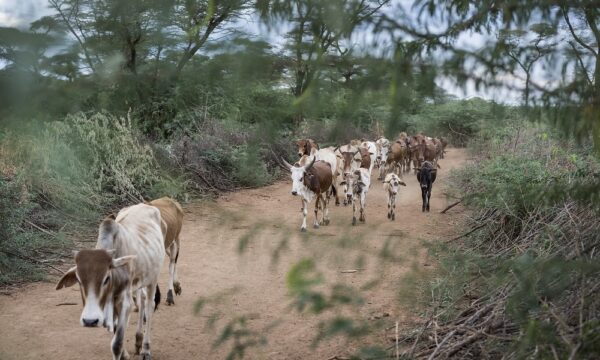
We know that invasive species – whose introduction and spread threaten biodiversity – disproportionately affect communities in poor rural areas who depend on agriculture and natural resources for their livelihood. But do gender roles and relationships in agriculture influence the way men and women experience the impact of invasive species?
In a recently published briefing titled, Invasive species management: Integrating a gender perspective, CABI authors Bethel Terefe, Frances Williams, and Julien Godwin, look at how gender affects the management and control of invasive species and how CABI is working to address this through its projects and implementation.
The roles and responsibilities undertaken by women in agriculture are often not seen as work, since they are not “paid”. For example, women are primarily engaged in unpaid care work activities like collecting fuel wood and water for the household. This means that the impact of invasive species which affect the availability and quality of drinking water and fuel wood will be felt more strongly by women and girls.
In contrast, where herding livestock is the main responsibility of men, the impact of invasive species that affect grazing land will be more strongly felt by men and boys.
Based on their gender roles, men and women will have different perceptions of risk on different invasive species. This will ultimately have implications in their participation in the management and control of the species.
Therefore, the authors assert that understanding the different impacts of invasive species on men and women should also inform the process of identification and prioritization of invasive species for intervention.
Studies in Nigeria found that women contribute 90% to hand-weeding labour and that 69% of children aged 5-14 are forced to leave school to work on farms, particularly at peak weeding periods.
Hand-weeding is extremely laborious and time-consuming. Interventions which focus on adopting improved technologies will enable women to have more time to spend in other care or income generating activities, and enable children to spend more time in education.
The briefing looks at how two invasive species in particular – Prosopis juliflora and Parthenium hysterophorus – have impacted agricultural communities in Ethiopia, and how each has had different effects on the men and women farmers. From the women having to walk much longer distances to collect wood because P.juliflora has invaded 700,000ha of land, to the women exposed to adverse health effects as they weed parthenium, where the invasive plant has reduced sorghum yields from 97% to 40%.
Ultimately, effective measures to prevent, manage and control invasive species should be gender responsive and CABI’s key focus areas going forward in its invasive species work will include:
– Advocacy for gender sensitive policy and practice in prevention and management of invasive species
– Improved access to information on invasive species management and control by women and men

View and download the full document from the CABI website: Invasive species management: Integrating a gender perspective
See how Prosopis juliflora is affecting pastoralist communities in Kenya
Find out more about CABI’s Action on Invasives programme, which is supported by the UK Foreign, Commonwealth & Development Office (FCDO) and the Netherlands Directorate General for International Cooperation (DGIS).
1 Comment
Leave a Reply
Related News & Blogs
CABI-led study suggests women in Pakistan need greater access to information on parthenium weed
A new CABI-led study investigated smallholder farmers’ knowledge, attitudes and practices towards parthenium and biological control in Pakistan. The study brings attention to important gendered aspects of parthenium impact. It also highlights smallhold…
27 June 2025





Yeah I think ultimately women are more invasive then men. That isn’t to say that some men align themselves more as an invasive species or women aren’t alturistic(opposite of invasive). But in general it’s a good rule to follow.